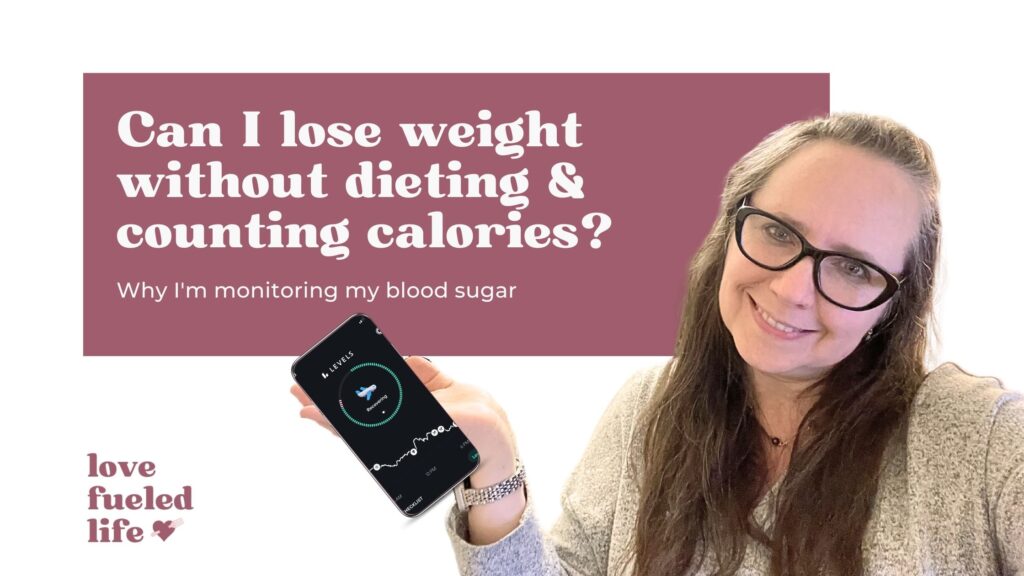Short answer, yes, I can lose weight without dieting, and have lost 30 pounds doing so without counting calories. BUT...I have yet to master the art of eating in a way that supports and MAINTAINS a healthy weight. So here we are after regaining 20 of that BUT stopped there and already back down another 5 (so down 16 since my highest weight, thank you COVID). But I am extremely optimistic now because of a shift in my approach and know I have the tools to make it last this time, and recover quicker when things go awry. Here's why I'm never going back to dieting and focusing on balancing blood sugar instead.
Wasn't always overweight, just 1/3 of my life now
I've learned A LOT over my weight loss attempts over the last 15 years....about 1/3 of my life I've spent either overweight or trying to lose weight. But losing weight really took over my life after kids. It's like it's become my second job (actually fourth job counting tending to kids, work and husband). Before that I'd dabbled with various diets, and basically just cut back on food drastically to do it, and it worked.
But I gained A LOT of weight after my first kid, and ended up weighing well more than I ever had in my life, around 210 lbs by the time I delivered (prior to that my overweight number fluctuated around 165-170 at most). I think that's why they really recommend you try not to gain so much weight during pregnancy, but the cookie cravings were real. So real, that by the end I could whip up a batch in 5 minutes, so 20 minutes from idea to cookie heaven. Ya, self-restraint is not an innate skill.
Weight Watchers multiple times
After my daughter was born, off to Weight Watchers (WW) I went. My leader (the person who leads the meetings there) was REALLY great and the program appealed to my nerdy side which likes data. I could count points, which for some reason felt less overwhelming than calories. I learned more portion control and what really packed a punch points (aka calories) wise. I followed the program diligently. I lost all the weight. And then came baby number two.
So, back came the weight. Out came the baby. Back to WW I went. Same leader. Same success. Then I got close to my goal weight and figured I could stop going. Big mistake. While I was a diligent follower, and even preacher of their program, I never dug into the core of my issues around food. And to be honest, it's just not food that I overindulged in...
Alcohol addiction
Booze...beer in particular, though in later years, especially those focused on weight loss, vodka became a prominent figure as did rose. Heavy drinking runs in my family. Though none of us who have the genes has suffered seriously (like losing a job or DUI) from abusing alcohol, it has been in control of the amount we consume.
So predisposition to alcohol abuse and then coupled with emotional eating, you have the fantastic duo of weight gain. These were the things I never dug into during WW. My sole focus on the outcome of weight loss drove me to reaching my goal, but since I never addressed the process of why I was gaining weight I stayed on the yo-yo diet roller coaster. Wanting to dive into the root of why I was regaining weight and do so without counting or omitting food groups is why I am on my current journey to lose weight without dieting.
Ditching calorie counting and obsessing over calorie deficits
WW definitely helps many people. I'd say it's biggest advantage is the accountability it provides, if you do weekly meetings. There's nothing quite like knowing someone else other than yourself is going to be looking at the number on the scale every week. It also reinforces healthy eating habits like eating more whole foods and smaller portions. What no longer resonates me with is the idea of counting what I eat. Although they talk about mindfulness and eating until full, the fact that your counting numbers (or only eating the free foods), you are relying on some other mechanism other than your body to tell you that your full.
Also those numbers can make you fearful of things like olive oil and nuts. These are foods that have so much nutritional benefit and can make you feel satiated. But I can tell you I severely restricted those foods while on WW. I realized years later when doing my nutrition certificate that I really had a fear of eating them, like they would be the sole cause of me gaining weight. WW is basically a fancy calorie deficit diet program with coaching. Last time I went there were different colors depending, but it's just a tracking mechanism.
Don't get me wrong, there is a benefit to getting a handle on your calorie consumption. WW does teach you that as there are VERY high points for high calorie food. My lack of interest in WW now has more to do with focusing on a calorie deficit approach to weight loss.
The idea that you should be tracking ALL your food in to lose weight takes the attention away to what your body is telling you. Now if you tell me that your body is telling you to eat those 3, 6 or whatever number of Krispy Kreme donuts, I get it. That's sugar's magic power...another story. But I can know after years of trying tracking, it gets VERY tiring, it's easy to not be accurate and frankly not sustainable for most people in the long run.
Time to lose weight without dieting and for a mindset makeover
There are a couple of other features about dieting that I've had enough of, with the first being the all or nothing approach. It's SO easy to get caught up in the novelty of 'starting a diet' when you have all the willpower in the world, or you have a self-imposed deadline, like vacation, wedding, etc. But when you're on a diet it's far too easy to feel once you go 'off the diet' you cannot get back on. You justify it, saying 'well, I already had that beer, pizza and cake yesterday, I might as well go for the giant club sandwich and fries today. Trust me, I know.
Ditching 'good' and 'bad' food labels
The all or nothing approach also ties into the idea that there are 'good' and 'bad' foods and that you ARE 'good' if you eat the 'good' foods, but 'bad' if you succumb to the sugar or carb dragons. I've realized with eating healthy, mindset is more than half the battle. When you are battling yourself and self-inflicting judgement into the core of your being because you ate a carb and/or fat laden meal, you are only hurting yourself and making it more difficult to transform those habits by reinforcing those mental barriers.
Willpower is overrated
May of us feel like failures or that we cannot be successful because we feel we lack willpower and therefore suck as a human being, maybe that's just me. My feeling is that when you beat up on yourself because of falling into habits you've cultivated for decades, there are other reasons why it happened. Willpower is a muscle. And over the course of any given day, let alone over an extended period of time of exercising it, we eventually run out. Having unrealistic expectations about changing what we put in our body overnight is plain unfair to ourselves. I chose to believe that each time we make choices that aren't the most healthful is always an opportunity to learn and be gracious with ourselves, and ditch the guilt. The future always holds another chance to make a different choice.
Balancing blood sugar for lifelong transformation
As I believe, you can learn from each round of weight loss and gain and from mine I arrived at the process of monitoring my blood sugar to assist with reaching and sustaining a healthy weight. The goal in monitoring my blood sugar is to maintain more balanced blood sugar, and avoid big glucose spikes. This topic will get a post of its own, but I found enough evidence about the negative impact on the body of large glucose spikes, especially when it comes to weight gain and inhibition of fat burning.
From a practical perspective, I will say the best thing I found to date about monitoring my blood sugar with a continuous glucose monitor (CGM) is the almost immediate feedback of my food choices on my body. It's like having a health coach living inside of you at a fraction of the cost. I can no longer hide from the impact of eating one, two...Cadbury Creme Eggs. It's not pretty on a graph my friends. So I'm finding it increasingly difficult to binge in the same way on sugar like I did. Now I'm far from perfect, and even smaller amounts of very sweet things, like baklava, can also cause insane spikes. But it's an experiment for me. And one I'm finding successful in making better choices more often than before. The weight is slowly coming off, but my biggest challenge right now is the counter balancing of healthy eating habits with drinking. That's also interesting to see in terms of blood sugar (more on that too). I currently am a Levels subscriber. They have an app, and you can decide how often you want the CGMs shipped. I am really loving the app, its CGM feature and its integration with Apple health. I'll share more about that in another post. I also tried Zoe, which was great and gave you details about your gut microbiome and glucose and fat digestions responses, but it wasn't designed for longer term glucose monitoring.
Let the blood sugar balancing experiment begin
A few weeks in, I'm down about 5 pounds depending on the day. Considering I've had my fair share of beer and/or rose, as well some sugar-laden foods like Girl Scout Cookies and Cadbury Creme Eggs, I would say this is progress and have hope that I can lose weight without dieting for life...So, follow along for more here and check out my TikTok for tips or to comment, and find out if monitoring blood sugar with a CGM for balance can help me lose weight.

